European elections 2024: Live results
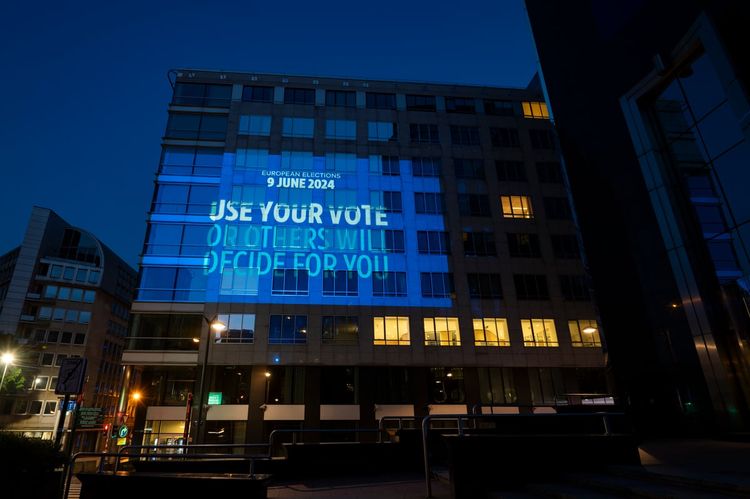
Over 360 million Europeans are qualified to participate in the continuous EU elections, which span four days and cover 27 EU nations. The election results will decide the dominance of political parties in Europe for the next five years, making it a long and meaningful democratic process.
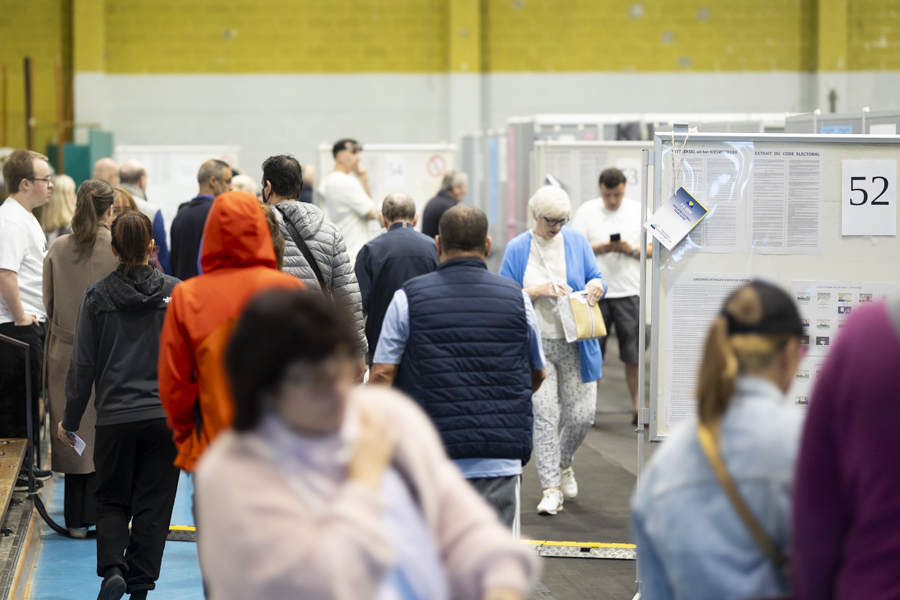
The turnout for European elections is typically quite low (in 2019, only 51 percent of eligible voters participated). However, this time around, these elections have gained significant attention, largely due to the major obstacles that the EU has encountered since the last election, specifically the Covid-19 pandemic and the conflict in Ukraine.
Contrary to past EU elections, the 2024 elections may result in a change of power balance favoring right-wing forces, which aligns with national political tendencies. This shift could lead to either more divisions amongst party groups within the upcoming European Parliament or a merger between national conservatives and populist far-right movements.
As we are yet to receive the conclusive outcomes from EU countries (specifically Italy, as their final voting polls shut at 11 pm), stay tuned to our real-time updates featured underneath:
"Wrapping It Up"
Thanks for being with us and please have a look at our concluding summary below.
EU Politics Harder To Understand Than Ever
On X, Alberto Alemanno, who is a professor of EU Law at HEC Paris and College of Europe, stated that EU politics are now more disjointed and difficult to comprehend than ever before.
According to him, the time following the election will be impacted and influenced by both domestic factors, including the sudden French elections and the creation of the Dutch government, and international ones, like the ongoing conflict in Ukraine and the upcoming American presidential elections.
The political groups in the EU are going to rearrange themselves for the purpose of sharing EU funds and important positions. According to Alemanno, there's a possibility that independent MEPs could also have an influence on shaping the upcoming political phase.
Leftist Parties Propose Democratic Majority, Renew Party Not Present
In a recent statement, Nicolas Schmit, the lead candidate for the Socialists & Democrats, expressed their willingness to work together with the European People's Party (EPP).
He stated that it was evident to his team. They are willing to collaborate with every democratic group in parliament. He expressed his congratulations to the EPP and their lead candidate Ursula von der Leyen on their successful election.
He also mentioned that we welcome all democratic groups while rejecting those who aim to destroy Europe.
He stated his belief that collectively, we can discover a solution to successfully manage Europe during this challenging period.
Although recognizing that some countries in Europe may have experienced both setbacks and victories, the Greens have emphasized the importance of maintaining a dependable majority. They have committed to responding sensibly in order to achieve positive outcomes for the people of Europe.
According to Bas Eickhout, the Green candidate, it is obvious that the lead candidate for the EPP has emerged victorious in the election. He believes that this should be taken into consideration during the council meeting scheduled for later this month.
He expressed his displeasure regarding the outcomes, attributing them primarily to defeats in Germany and France. However, he highlighted the victories of the Green Party in other locations.
Eickhout expressed dissatisfaction with the overall quantity of seats and commented that the greater presence of green representation across Europe brought him contentment.
The politician from the Netherlands expressed his opinion that the issues confronting Europe were too significant to engage in political maneuvering. He emphasized the importance of forming a dependable majority and recommended that the Greens be considered as a prospective ally in this regard.
According to Eickhout, The Greens are prepared to fulfill their obligations and take on the task at hand. He also emphasized the importance of preserving the Green Deal by incorporating it into a green industrial plan. He believes that disregarding the Green Deal at this point would be a grave error.
It is worth mentioning that Valérie Hayer, who is a member of the Renew Europe party, did not attend the meeting of the lead candidates in the European Parliament on Sunday night.
Ursula For Another 5 Years?
On Sunday evening, Ursula von der Leyen, the current president of the commission belonging to the European People's Party (EPP), was the first person aspiring for the position to address the audience.
Von der Leyen declared it a favorable occasion for the EPP, rejoicing in their triumph in the election. She expressed her belief that the outcome conveyed two significant messages.
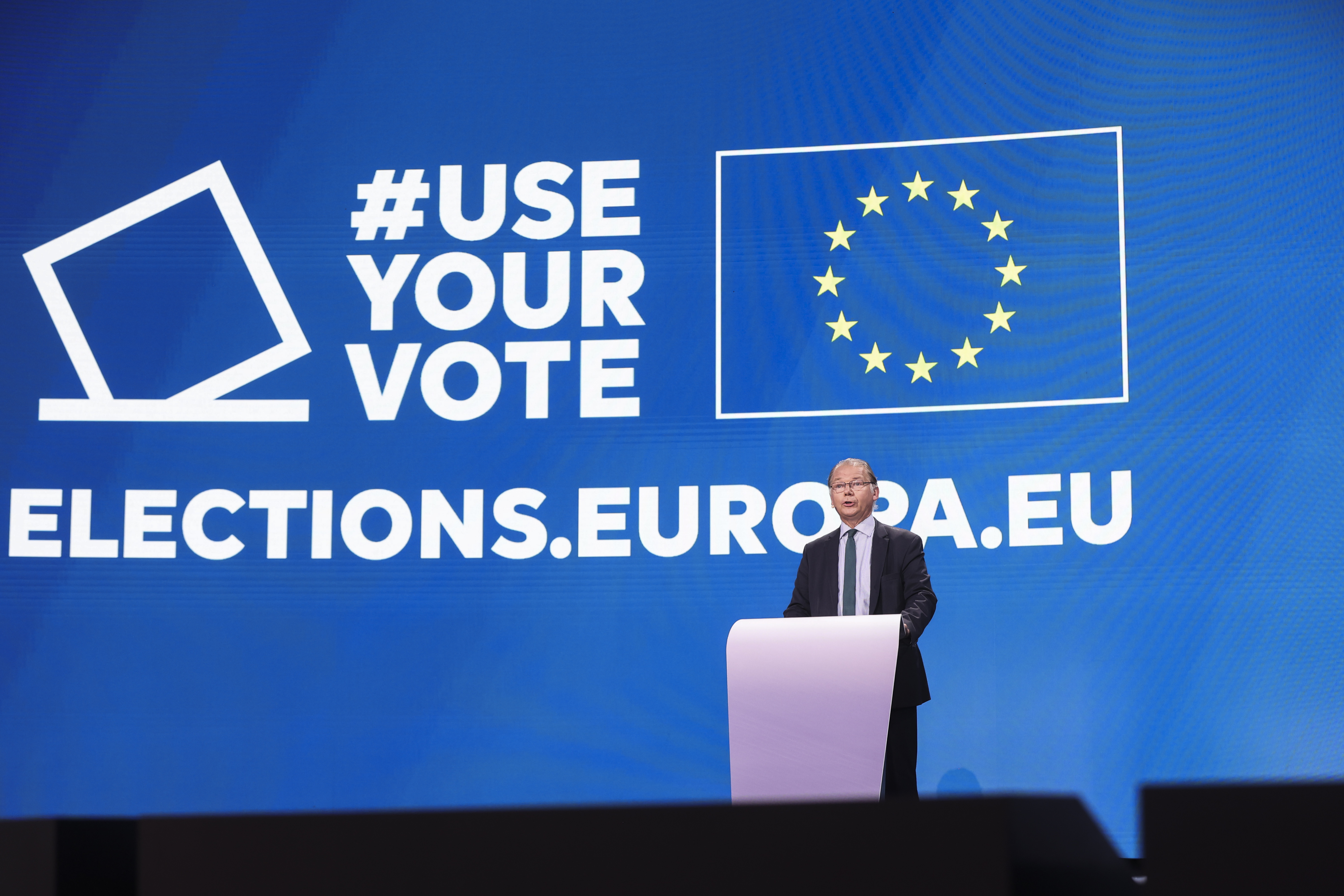
Initially, von der Leyen pointed out that most people still advocate for a powerful Europe located at the center. Nonetheless, she also acknowledged that there is a growing popularity of extreme views from both ends of the political spectrum.
Furthermore, she reiterated Weber's observation regarding the importance of establishing a "foundation" alongside social democrats and liberals. She referred to this as a "well-established and productive partnership."
Asked about the possibility of including the Greens in this platform, von der Leyen stated that other collaborators would be given attention at a later time. "Let's focus on the primary matter first," she added.
When striving for the presidency of the commission, she expressed assurance in obtaining another term.
It is anticipated that the Greens will not have much influence in the European Parliament due to a significant defeat in Germany and France.
"Climate Change A Tougher Sell"
The Greens lost their position when the far-right Identity and Democracy Group and the European Conservatives and Reformists Groups took over. Their MEPs dropped from 71 to 53.
This is a shocking loss after winning the 2019 election with a focus on addressing the issue of climate change.
However, according to EUobserver, Philippe Lamberts from Belgium, who has been co-leading the Greens since 2014, stated that the way of thinking regarding the environment has shifted.
He mentioned that the widespread movement to address climate change, particularly in Northern and Western Europe, was not as prominent this time around. Additionally, he noted that the general public has become more discerning since 2019, which makes convincing them to take action to combat climate change a more challenging endeavor.
Naturally, it's never easy to lose seats, and we feel it just as strongly. Nevertheless, we are also making progress in different nations, as noted by Bas Eikhout, a Dutch Green MEP, during a media briefing held in Brussels.
'Respect Election Results': Weber Of EPP
Manfred Weber, the leader of the European People's Party (EPP), was feeling very happy. He said, "We were victorious in the elections." He also mentioned that out of all the "democratic centre parties," only the EPP was able to gain seats.
Weber commended Ursula von der Leyen for being an effective lead candidate and urged the other political parties to back her bid for the presidency of the commission.
Weber stated that individuals discussing the preservation of democracy must uphold the results of any election. He asked for Olaf Scholz, the German chancellor, and Emmanuel Macron, the French president, to support von der Leyen as the president of the commission.
Weber extended an invitation to Europe's social democrats and liberals to come together and be a part of the EPP's "pro-European and pro-democratic alliance." However, he did not invite the Greens immediately and expressed that the foundation of the alliance relies on the platform of social democrats and liberals.
Weber stated that those who seek to harm Europe are foes, and the EPP will prevent them from having any say in the EU. However, Weber refrained from identifying these adversaries, leading to conjecture about potential cooperation between EPP and the conservative ECR.
In response to Peter Magyar's Respect and Freedom, a potential MEP candidate from Hungary, possibly joining the EPP, Weber stated that multiple individuals also wanted to join the party. Weber expressed positivity towards this, stating that it is fantastic news as it reflects the attractiveness of the party. Weber also mentioned that all those who uphold and respect their goals are welcome to join, as the doors are open.
Socialists Demand 'Euro Coalition'
Pedro Marques, a member of the European Parliament from Portugal, and also the vice-chair of the Socialists and Democrats (S&D), has recently urged the formation of a coalition that supports democracy for the next mandate.
He stated that our objective in the upcoming weeks and months will be to establish a majority of individuals who support a democratic Europe, as well as a majority who endorse the importance of following the laws.
Marques gave his congratulations to the European People's Party (EPP) and their main candidate, Ursula von der Leyen. However, Marques also emphasized the importance of the EPP not working together with the European Conservatives and Reformists (ECR).
He said that in case we need to stretch this stance, it must be towards the liberal side of pro-European factions and absolutely not in the direction of the extreme right.
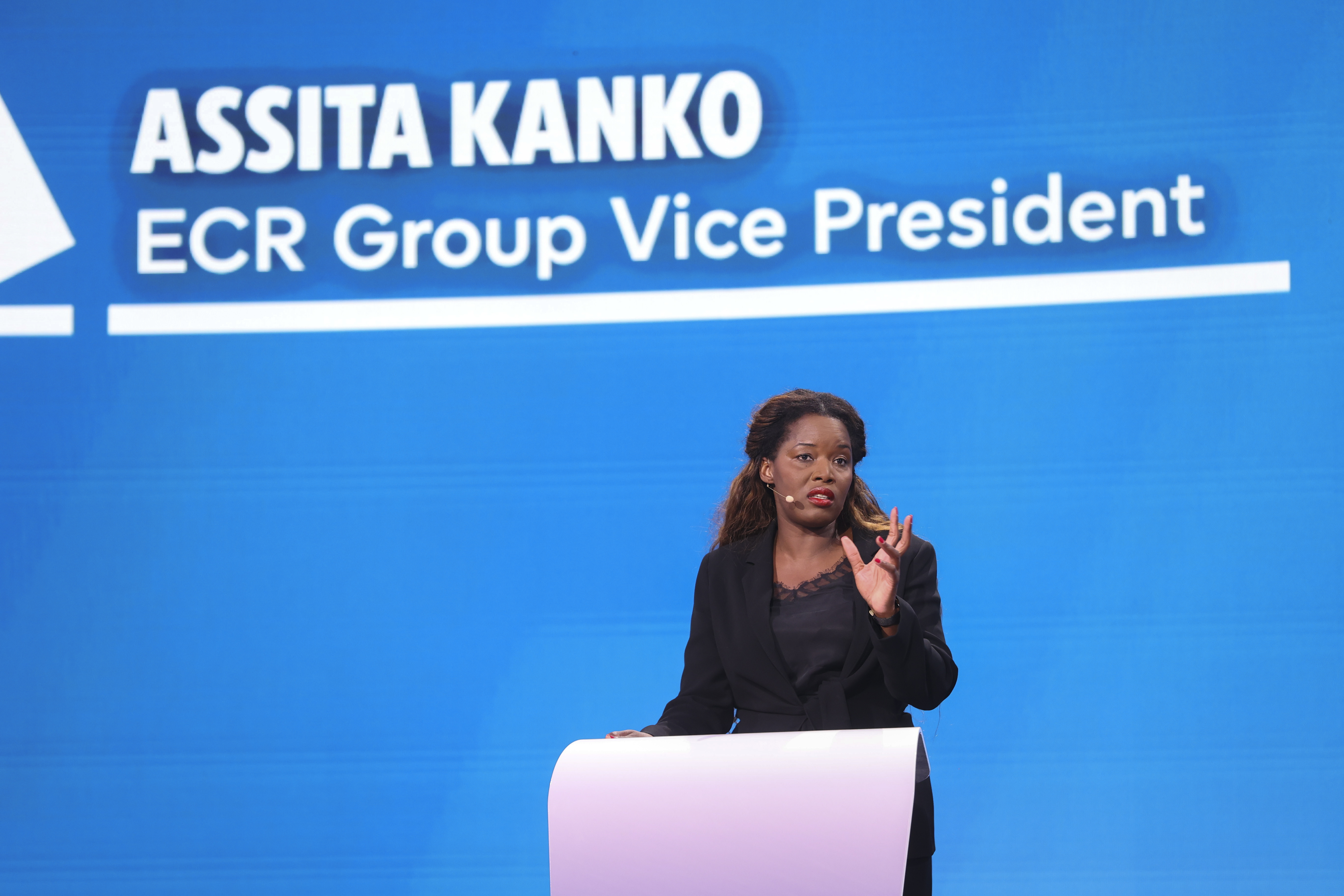
He said that if it's necessary, the Greens should be invited to participate in negotiations.
According to the most recent exit polls, the EPP, S&D, and Renew Europe political parties are likely to hold approximately 398 seats. This amounts to 55.2 percent of all votes cast, which is a decline from their 2019 share of 59.1 percent. However, if the Greens joined forces with this pro-democratic coalition, the number of seats would increase to 451, representing 62.6 percent of all votes.
It's doubtful that this partnership will last for the next five years. Although the S&D and Renew, together with the Greens and The Left, managed to pass some legislature such as the Nature Restoration Law, the vote also revealed a shift in the EPP's stance, aligning with national conservatives ECR and far-right Identity and Democracy (ID). This has raised concerns about the possibility of the EU introducing future green legislation.
Greens Push For Green Deal Expansion Despite Poor Results
Philippe Lamberts, the former leader of the Green Party, expressed his frustration with the election outcome, which has resulted in setbacks for the party's efforts to address climate change.
He mentioned that the outcome of tonight's event wasn't really in favor of the Greens. However, Lamberts believes that the welfare of the Earth requires a broader Green Deal proposal.
He urged the conservative, social democrat, and liberal parties to avoid aligning themselves with any extremist groups that fall under the umbrella of the far-right movement.
Even though the outcomes tonight were not what we hoped for, as members of the Greens, the European Free Alliance, we are prepared to fulfill our duties.
Nordic Far-right Parties Not Performing Well
Political parties with left-leaning ideologies, such as the Greens, are experiencing growth in Denmark and Sweden while other countries within the European Union report declines.
Denmark has witnessed an impressive turn of events with the Greens (Socialistisk Folkeparti) acquiring the top spot in the polls with 18.4 percent, while the socialists and liberal conservatives followed closely behind, as per the exit polls.
"I cannot express my immense pride," declared Pia Olsen Dyhr, the head of the party. Previously, her political group had issued a declaration that advocated for a distinct approach to tackle welfare and climate issues. The declaration pledged that they were eager to present it in the European Parliament.
Fresh updates have emerged from Sweden, where the green political party has gained significant ground and now stands as the third biggest party with a 15.7 percent vote share. This represents a significant increase of 4.2 percent in comparison to their performance in the preceding year.
At the same time, the Sweden Democrats, who hold nationalist and far-right views, experienced a decrease to 13.9 percent. This is a decline of 1.4 percent compared to their percentage in 2019.
On X, Cas Mudde, a professor of politics from the Netherlands, mentioned that the far-right political parties in the Nordic countries appear to be performing below average.
Weber Urges Support For Von Der Leyen
The head of the European People's Party, Manfred Weber, urges democratic parties at the European Parliament to honor the outcome of the election.
On a specific date, he declared that the lead candidate of the EPP, Ursula von der Leyen, must receive their backing to become the Commission president and serve for the following five years.
ECR Focused On Centre-right EPP, Silent On Fidesz
Assita Kanko, who is also a Member of European Parliament in Belgium, represented the European Conservatives and Reformists (ECR) and gave a speech. Kanko expressed that extremist movements have more opportunity to grow when the genuine desires of citizens are overlooked or not acknowledged. She emphasized that it's essential to implement "centre-right policies" when it comes to defence, security, and migration matters.
Kanko proposed a potential partnership with the European People's Party and expressed her desire that they "become a member of the majority in this parliament."
During the last five years, we collaborated efficiently with Von der Leyen, who is the commission president of EPP. Kanko stated that there are no barriers or obstacles that could prevent us from working with EPP in the future.
Kanko declined to give an opinion on whether Fidesz, led by Viktor Orbán, would be accepted into the ECR to increase its membership. "I believe our main focus should not be on being the largest group, but rather on finding ways to work together with our current members, considering the results of the elections," she stated.
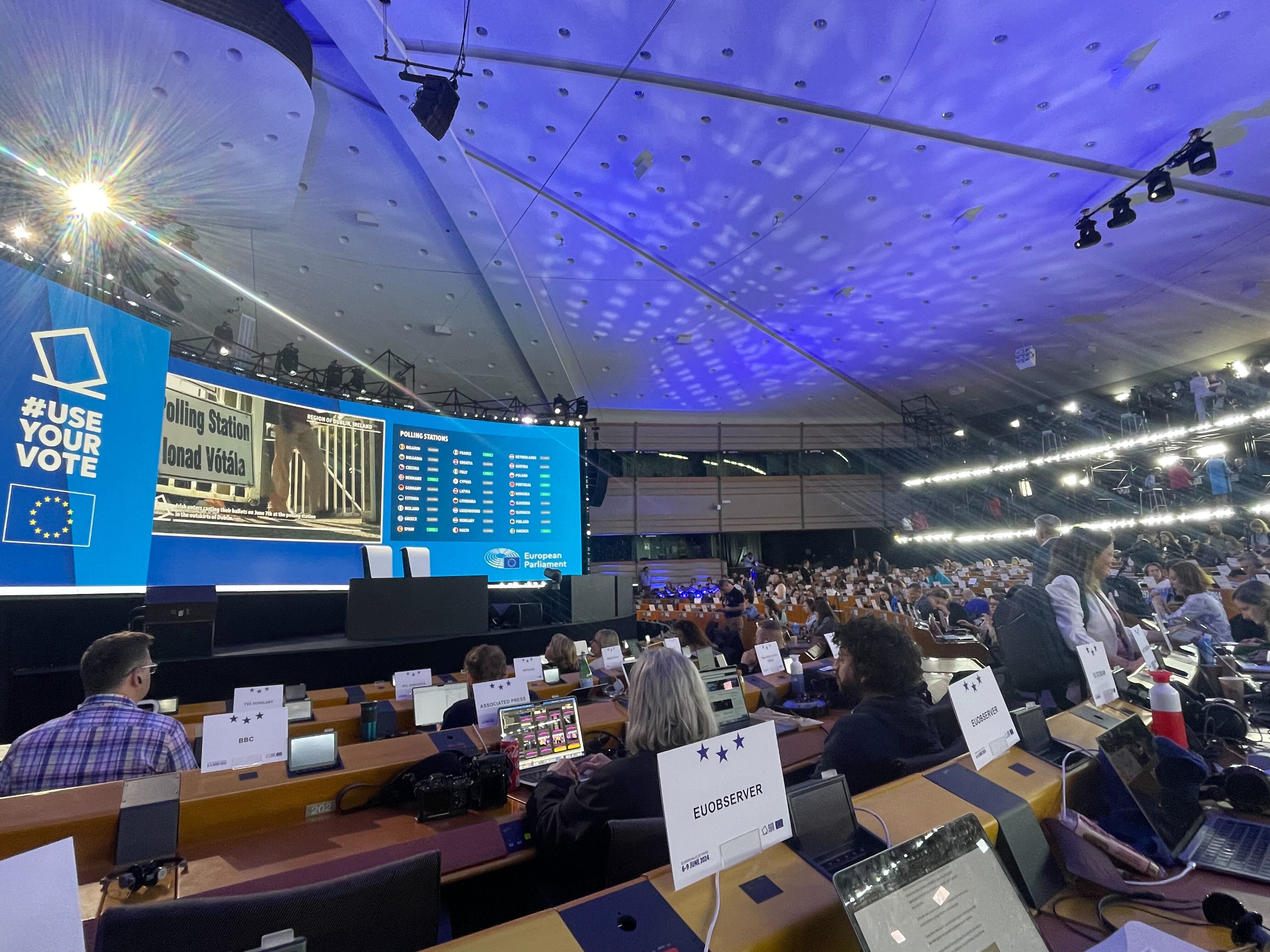
Left Responds To Exit Polls
Marc Botenga, a member of the European Parliament from Belgium, belonging to the Left political faction, appreciated the progress made by the Left in various nations. However, he also voiced his apprehension regarding the growth of the extremist right-wing groups.
Botenga stated that the "traditional parties" were to blame for the current situation. He believed that the citizens' anger over the worsening quality of public facilities and infrastructure pushed them towards extremist right-wing ideologies. Moreover, he expressed his regret about the "politics that have caused havoc across the entire Europe."
PiS Loses Support, Tusk's EPP Wins Majority
Exit polls show that the Civic Coalition party, led by the Polish Prime Minister and former European Council President Donald Tusk, has gained around 38% of the vote.
It is anticipated that the Civic Coalition led by Tusk will have 19 MEPs during the upcoming European Parliament session. This equates to the same number secured by the PiS party, a faction that gained notoriety for disassembling the rule of law during their previous administration in the country.
The PiS party, which belongs to the European Conservatives and Reformists as one of the biggest right-leaning groups, has experienced a decrease in support in the recent years. In 2019, they had the backing of 45 percent of the population, but that number has lowered to 34 percent in 2024. Experts predict that this loss in popularity will cause them to miss out on seven seats.
On the other hand, it is anticipated that the Third Way, a liberal political stance, will secure three seats, whereas the socialist party is likely to receive two MEPs.
Six MEP hopefuls from the extreme right-wing party Confederation [Konfederacja] have arrived from Poland. However, the party has yet to align itself with a political group for the upcoming term.
Macron Announces Surprise Snap Elections This Month
The leader of France, Emmanuel Macron, caused a stir after his party's major loss in the European elections. He surprised many by dissolving the National Parliament of France and announcing an immediate parliamentary election.
Macron emphasized the importance of France having a decisive and peaceful majority, urging the French people to take control of history instead of being controlled by it. The initial round of voting is scheduled for June 30th, with a subsequent round on July 7th.
Spanish Voters Lean Towards EPP Despite Vox's Gains
The centre-right People's Party has won Spain's European elections, according to initial exit polls. This mirrors the outcome of the recent national elections in Spain. The party has secured 22 out of the 61 seats assigned to Spain.
The far-right party Vox, which belongs to the European Conservatives and Reformists, has experienced a significant surge in popularity, jumping from six to 10 percent. This has resulted in their number of MEPs doubling from three in 2019 to seven in the upcoming legislative term.
The political party of the current prime minister Pedro Sánchez, who follows socialist ideologies, has experienced a small decrease in backing, going down from 33 percent to 30 percent, but their presence in the EU parliament will be preserved with their 20 MEPs. Meanwhile, Sánchez's colleagues, who belong to the Green group, have boosted their representation, going from having two MEPs to having four.
One of the major losers of the recent election is Ciudadanos, a party that was founded in Catalonia in 2016 but is now no longer in existence. Their support drastically decreased from 12 percent in 2019 to only one percent, leading to their removal from the European Parliament. This marks a significant downfall for the liberal party.
The political parties in favor of Catalonia's independence are split up into two groups, the Greens and the Left. These parties have successfully earned three Members of the European Parliament (MEPs).
It is anticipated that there will be two MEPs from the political group called 'Se Acabó la Fiesta' [The Party's Over]. Their leader is known for being a far-right extremist and has achieved notoriety through various social media platforms such as Telegram, Instagram, and YouTube.
France Sees Victory For Far-right
Jordan Bardella, the leader of the far-right movement in France, has expressed his desire for the European Union to head in a different direction. This comes after the National Rally (RN), led by Marine Le Pen, secured a significant victory, projected to win 30 out of 81 seats in France. This marks a 12-seat increase from their 2019 result.
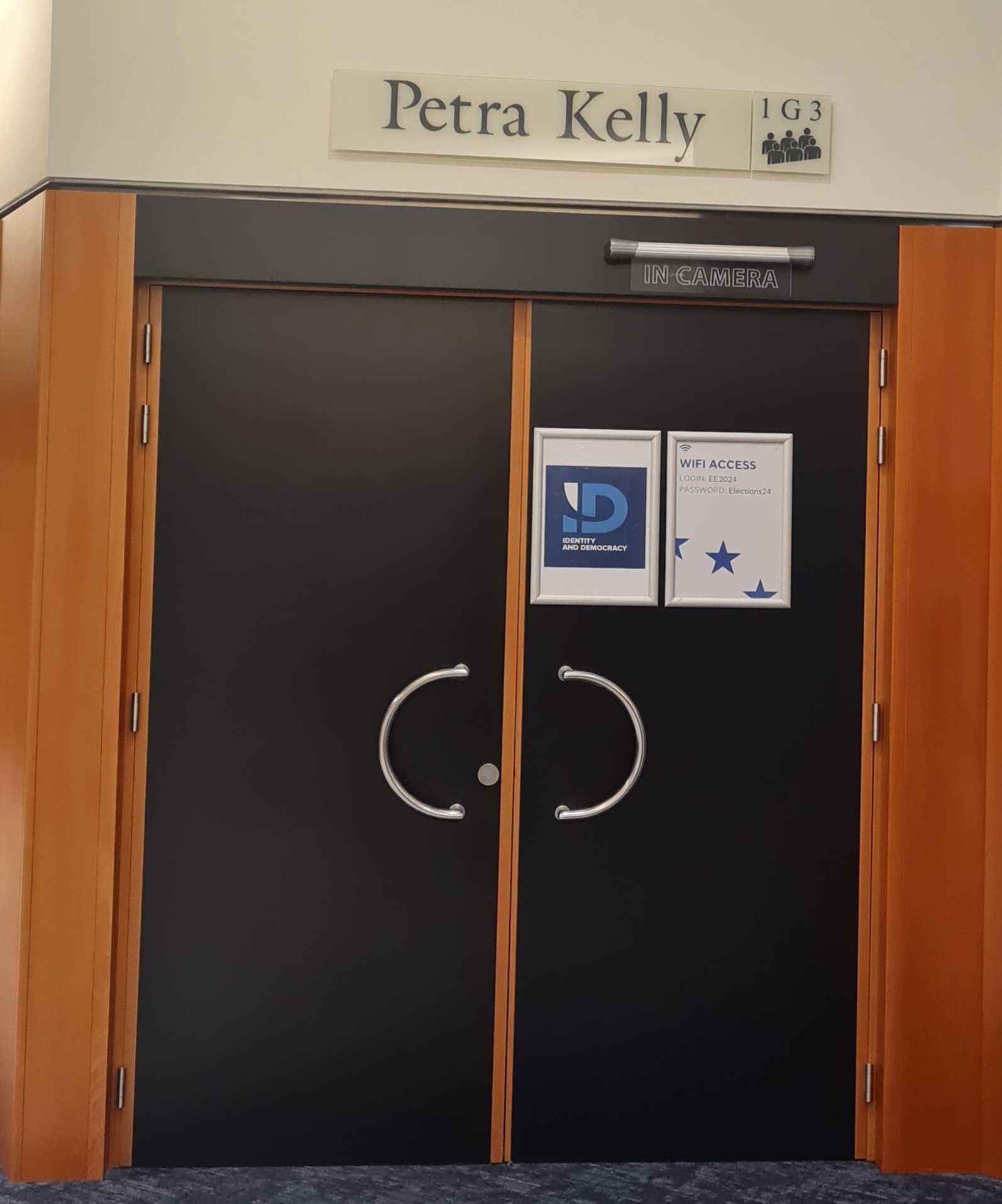
Jordan Bardella, who is the president of the National Rally at 28 years old, has stated that the French are demanding to regain control over migration politics and the power of the state over every square meter of the territory.
The Renaissance coalition led by French President Emmanuel Macron came in second place with 15.2 percent of the votes, while the socialists came in third with 14.3 percent.
Emmanuel Macron, the President of France, and his liberal Renew coalition suffered a humiliating setback in the European parliamentary elections. They managed to secure only 14 seats, which is less than half of the expected number. This resulted in them losing nine seats and it was a significant blow to their confidence. The Social Democrats, on the other hand, led by Raphael Glucksmann, performed remarkably well. They managed to increase their MEPs' seats from seven to 13. In fact, they almost overtook the Macron coalition in terms of seat numbers.
Manon Aubry's hard-left party, "France Unbowed" of The Left, saw a slight improvement in their performance with the acquisition of eight seats, as opposed to seven in the previous year. On the other hand, the centre-right Republicans suffered a loss of two seats, reducing their previous tally of eight.
Meanwhile, there are concerns about the rise of far-right politics in France as Eric Zemmour's Reconquest Party, a member of Identity and Democracy, has gained five seats in parliament. The Greens have also suffered significant losses, with their number of MEPs dropping from 12 to five, losing more than half of their seats.
France's recent election win coincides with the rise of far-right parties in Germany and Austria.
The Alternative for Germany (AfD) political party secured 16.2 percent in the recent elections, placing second after CDU/CSU who were the leading party with 30 percent, as indicated by exit polls.
The AfD's leaders are very pleased with the election result, which they consider to be outstanding. The fact that they won despite the controversy surrounding their main candidate Maximilian Krah, who has been linked to Nazism, is noteworthy.
Overall, individuals are frustrated with the excessive red tape originating from Brussels, as mentioned by Alice Weidel, the co-leader of AfD, during her appearance on ARD's broadcast.
The far-right Freedom Party of Austria (FPO) is also experiencing comparable progress. The party was initially established in 1956 by a former Nazi and SS officer who now holds a prominent position.
According to the latest exit polls, the FPO is currently leading in Austria with 27% of the support, with the Austrian People's Party (ÖVP) following closely behind.
New calculations indicate that the far-right Identity and Democracy faction may potentially hold 62 MEPs, an increase from their current amount of 49.
1st Complete Election Projection Based On Preliminary Results
The latest projection based on national preliminary results states that the European People's Party (EPP) is expected to be victorious and obtain 181 MEPs, a slight increase compared to their number of 176 in 2019. On the other hand, the Socialists and Democrats (S&D) are forecasted to lose four seats, meaning their total number of MEPs will lower from 139 to 135.
As a result of farmers' demonstrations against Europe's environmental plan, known as the "greenlash," the Green political party is expected to experience a considerable decrease of 18 seats from their existing 71 seats. Moreover, the Renew Europe party is also anticipated to face substantial losses as their MEPs may fall from 102 to 82.
The European Conservatives and Reformists (ECR) have gained some more support, and looks like they will win two extra MEPs. This will increase their total number of members in the upcoming European Parliament to 71, making them the fourth biggest group.
At the same time, the extreme right-wing party Identity and Democracy (ID) has experienced significant growth, as their seat count has risen from 49 to 62.
It is important to keep in mind that the information we have at the moment is not final, and there might be changes in the composition of political parties.
European Parliament head Roberta Metsola, who belongs to the European People's Party (EPP), cautioned that the initial estimate is based on early voting, and there are still ongoing elections in Europe.
Groups such as Alternative for Germany (AfD) and Fidesz, led by Hungarian prime minister Viktor Orbán, are currently not affiliated with any specific political family. However, it is anticipated that they will join a political group to bolster their sway in legislative affairs.

The Croatian Democratic Union, led by Prime Minister Andrej Plenković, is expected to secure a top spot in Croatia. They are predicted to obtain six of the 12 seats available, which is an increase from their previous four MEPs.
In the recent elections, the Social Democratic coalition of Croatia secured the second position by winning four seats. It's noteworthy that they have gained one more seat than they did in the last elections which were held in 2019.
The Green party known as "We can!" and the far-right Homeland Movement that is a member of Plenković’s government coalition are going to make their debut in the European Parliament with a seat each.
Bas Eickhout, The Green Party's Lead Candidate, Addresses
In response to the outcome in Germany, Bas Eickhout, who leads the Green party, tried to explain the party's decreased support. He claimed that it was not a rejection of their environmental policies, but rather a reaction against the coalition government in Berlin made up of socialists, liberals, and the Greens, known as the "traffic-light coalition."
Highlighting the progress achieved in the Baltic nations, Eickhout stated that the Greens had achieved their best result to date in 2019 and acknowledged that it would be difficult to replicate such success.
The leader of the Green team rejected the proposal to find and bring in new members to increase their team size. Eickhout said that they will not alter their strategy depending on the number of seats they have. He emphasized that the importance of their agenda is their top priority.
According to Eickhout, it's important for the Greens and Social Democrats to work together more closely in order to effectively combat the far-right. He pointed to the example set by the Dutch as a model for cooperation. "Progressive groups need to come together and strategize: What is our plan of action, and how can we ensure that it is seen as a viable alternative?" he remarked.
However, he declined to declare his endorsement for Ursula von der Leyen's campaign to be re-elected as the European People's Party (EPP) commission president.
Eickhout expressed that it is premature to make any conclusions at this point. He mentioned that any alliance that they become a part of must prioritize democracy and European values. He made it clear that the Identity and Democracy group and the European Conservatives and Reformists group will not be considered for this alliance.
One-night Home To World's Biggest Newsroom!
Around 1,000 reporters from 90 different nations will be present at the European Parliament to report on the election night. This will transform the arena into the biggest news headquarters of the world for one single night.
Soon, we will have the first estimation of the complete hemicycle, which relies on the preliminary election outcomes of each country. Germany has already released their preliminary results, and now the attention is shifted towards France. There, the National Rally, which belongs to Identity and Democracy, is currently topping the polls, representing the far-right and led by Marine Le Pen. Everyone is eagerly anticipating the upcoming data.
"Free EUobserver Coverage For EP Elections Week!"
EUobserver is a news organization that reports on the European Union and operates without a profit motive. We operate in an unbiased manner, which implies we aren't funded by wealthy owners, organizations supporting us, or wealthy benefactors from the Middle East paying our wages. Instead, our work is supported by people like you.
The things you have given us have aided in the exposure of wrongdoings, coverage of important matters (that may not be pleasing to advertisers) including work regulations and movement, and the holding of authority responsible.
If you appreciate the content we provide, please contemplate becoming a supportive member by opting for a subscription starting at €1 per month. Alternately, you can subscribe to our newsletter and gain access to three complimentary articles every month.
Assist in maintaining the autonomy of our unbiased coverage.
NVA Set To Win Belgian Election
According to early estimations, the NVA, a Flemish nationalist group that belongs to the European Conservatives and Reformists (ECR), is anticipated to win the simultaneous national election in Belgium on Sunday. This party is predicted to secure around 23% of the votes in the Belgian Chamber of Representatives, which is a significant improvement of 7% from the previous election held in 2019.
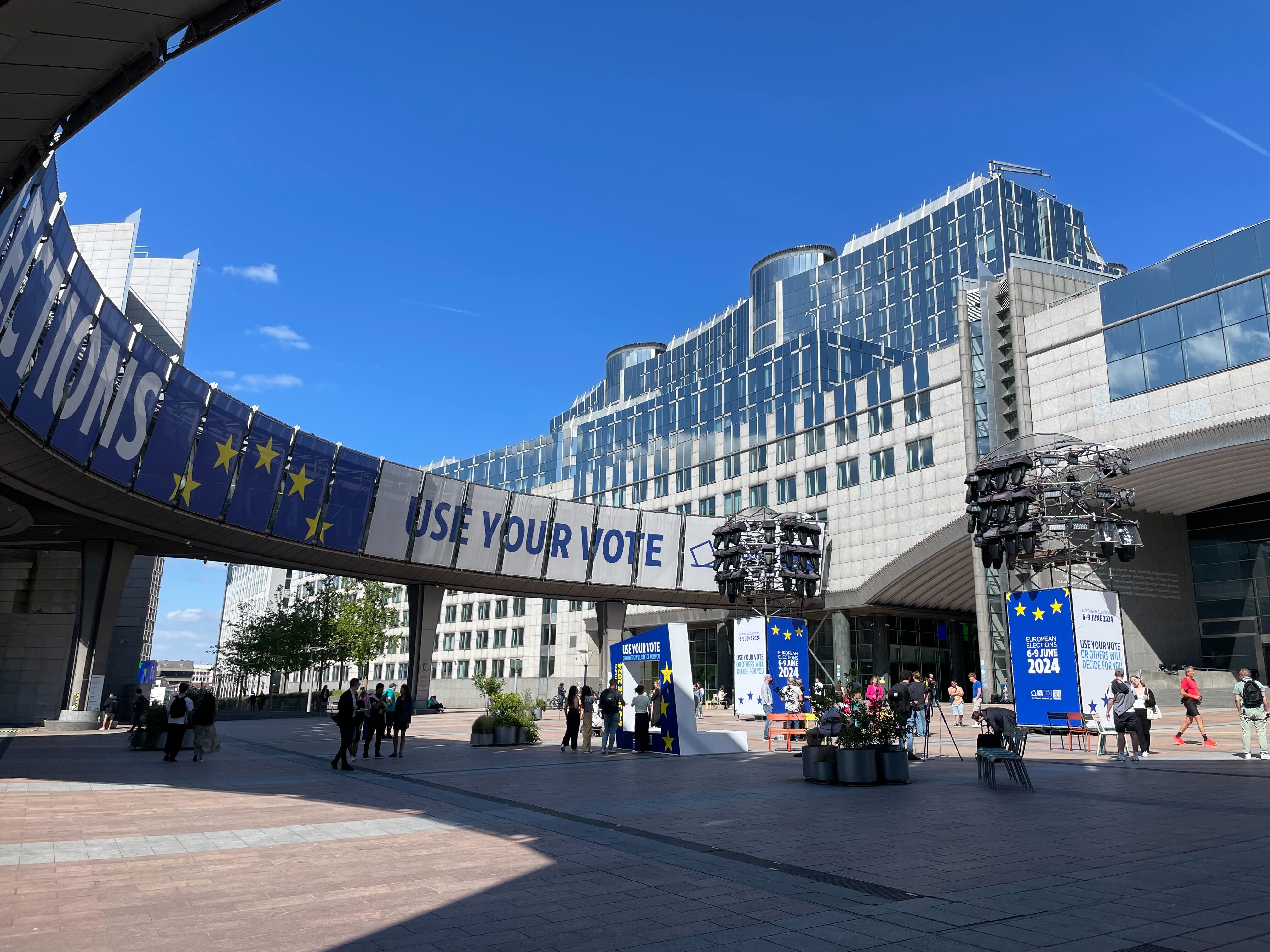
The extremist Vlaams Belang party, part of the Identity and Democracy group, has seen a substantial rise in popularity in Flanders, which is located in the northern part of Belgium. Their support has increased quite rapidly, going from just three percent in 2014 to approximately 12 percent in 2019, and now standing at 18 percent in 2024.
Bart de Wever, the current mayor of Antwerp from the NVA party, wants to be the next Prime Minister of Belgium. He has already stated that he will not collaborate with Vlaams Belang. Instead, he is eyeing a center-right coalition with the Christian Democrats and the liberals. This collaboration could be established by September.
Nevertheless, the counting of votes in Belgium is still ongoing and only 65 percent of it has been completed. It is important to note that voting in Belgium is compulsory.
Weber Criticizes German Coalition After Exit Polls
Manfred Weber, the leader of the European People's Party, expressed his delight with the success of the centre-right CDU/CSU after the initial polls were released in Germany. The party is anticipated to obtain 30 European Parliament seats.
He additionally conveyed that the coalition in Berlin referred to as the "traffic light", made up of the Free Democrats (FDP) represented by the color yellow, the Greens, represented by the color green, and under the leadership of a Social Democrat (SPD) chancellor named Olaf Scholz, symbolized by the color red, does not effectively connect with individuals anymore.
On X, he stated that our mission is to promote stability and ward off the advances of rightwing extremists such as the AfD.
"Far-right Honors Eco-feminist By Naming Room "
The European Parliament has designated a room named after Petra Kelly, a deceased German eco-feminist activist, to the far-right political group Identity and Democracy (ID).
In 1979, Kelly was one of the founders of the Green party in Germany. However, in this election, the Green party has suffered a significant defeat compared to its impressive performance in 2019. The latest exit polls suggest that the far-right Alternative for Germany has made gains at their expense.
Kelly, who passed away in 1992 when she was 44, concentrated a lot of her efforts on promoting peace and non-aggression, protecting the environment, advocating for women's rights, and supporting human rights.
Frequently, these endeavors oppose the political objectives of the ID faction, that has criticized the European Commission's conversion to a more environmentally friendly approach.
By chance, ID is situated on the same level as the Left, who occupy a space designated as the Manolis Glezos room, in honor of a leftist politician from Greece.
Greek PM Mitsotakis Gains Confirmed Support
The most recent national estimates show that the New Democracy party, which belongs to the European People's Party and is led by Greek prime minister Kyriakos Mitsotakis, has strong backing and has managed to obtain eight of the 21 available seats in Greece. In comparison to the previous parliament, New Democracy has increased its presence and now holds six additional seats.
Mitsotakis voiced on Sunday that Europe is set to make crucial choices in the next five years.
The top opposition Syriza will hold onto its four MEPs, whereas the socialist group Pasok has gained more support and secured three MEPs, one more than before.
The party called Greek Solution, belonging to the European Reformists and Conservatives, has gained one more seat compared to the previous elections. Meanwhile, the communist party of Greece maintained its electoral outcome with two seats.
The parliament will have new members from Greece: Niki from the far-right and Course of Freedom from the left-populist, both with one seat. Renew and the Greens won't have any more MEPs from Greece.
Austria's Far-Right Gains Double The Support
According to primary national assessments, the Freedom Party (FPO) of Austria, which is a far-right party and a member of the Identity and Democracy (ID) group, has triumphed in the European Parliament elections and secured roughly 27 percent of the vote. As per the projections, the FPO is expected to increase its number of MEPs from three to six out of the 20 seats in the country.
It's expected that Chancellor Karl Nehammer's group, the Austrian People's Party (part of the European People's Party), will have five representatives in the European Parliament, which is a decrease of two compared to the previous term from 2019 to 2024.
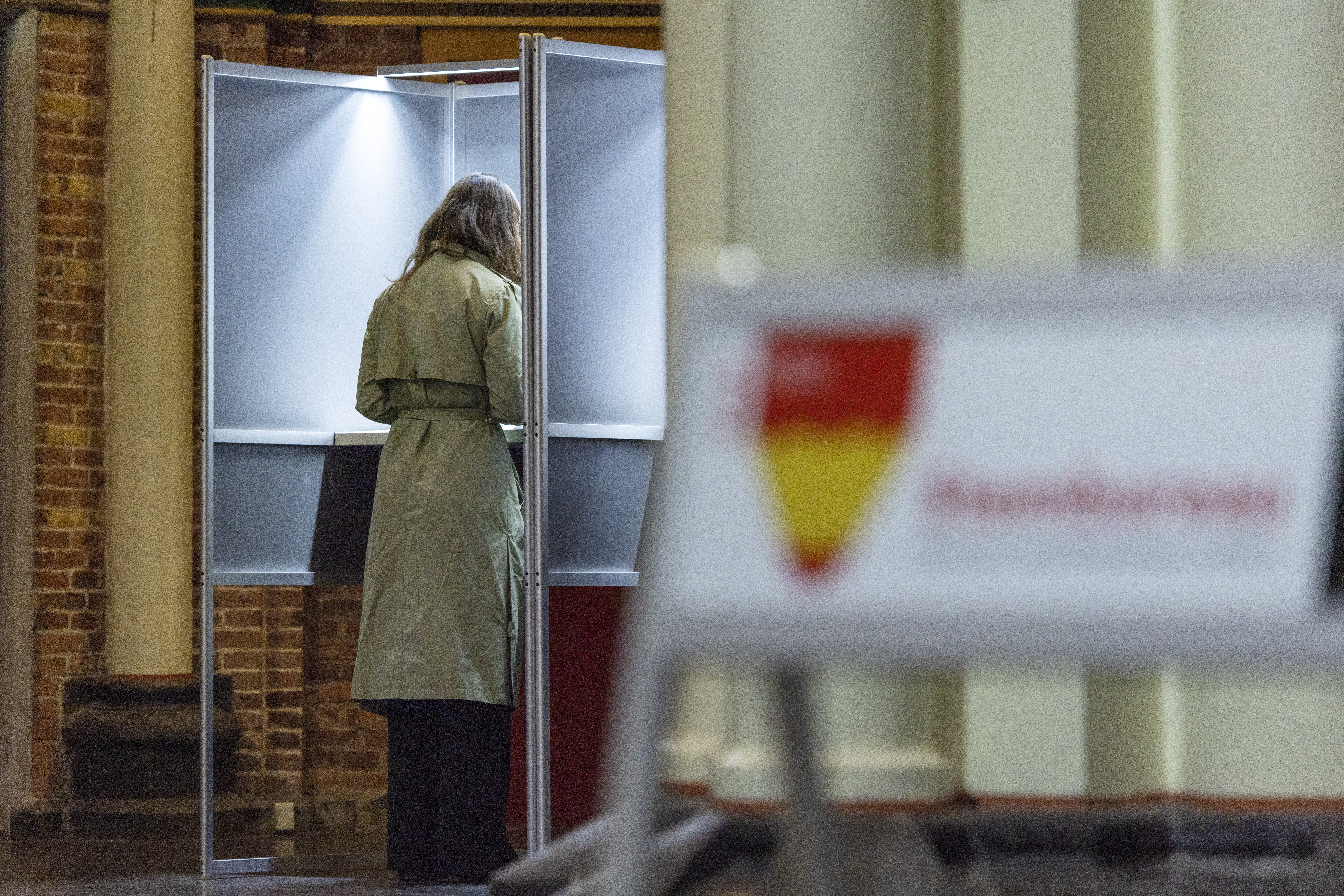
The Austrian Social Democratic Party plans to keep the same five MEPs that were elected in the previous European elections.
The Green Party is expected to have a decrease in its number of MEPs after receiving around 10 percent of the votes in the election. This comes after a controversy before the election, where Lena Schilling, the 23-year-old lead candidate for the Green EU, was accused of spreading harmful rumors. The projected outcome for the party is two MEPs, one less than the previous mandate.
The political party NEOS, associated with the liberal group Renew Europe, experienced a slight rise in backing, moving from eight to 12 percent. They are predicted to clinch two spots and acquire an additional member of the European Parliament.
On the other hand, the party led by Walter Baier, who was the main candidate for the European Left in the European elections, seems to have faced the greatest defeat as it only managed to secure a mere three percent of the total votes. Unfortunately, this outcome signifies that they won't have any presence in the upcoming European Parliament.
AfD Gains 5% In Germany's Election
The initial forecast for Germany, which possesses the European Parliament's biggest representation with 96 positions, has been received.
Although accusations have been leveled against Maximilian Krah, the main candidate for the party, the far-right Alternative for Germany (AfD) saw a significant rise in popularity, increasing from 11 to 16 percent and gaining 19 MEPs. This marks a trend of far-right parties gaining ground throughout Europe. The far-right Identity & Democracy group in the European Parliament removed the AfD following scandals that emerged before the election.
The top political party in Germany is the Christian Democratic Union (CDU), which is led by commission president Ursula von der Leyen. The party belongs to the European People's Party and has maintained its lead by securing 30 MEPs.
Another person who won that night is a new face named Sarah Wagenknecht. Her political party, called the Sahra Wagenknecht Alliance or BSW for short, got six percent of the votes. This is quite impressive, especially considering that she left her previous party, the hard-left Die Linke, which only managed to get three percent of the votes.
In the meantime, the German Green party experienced a significant decrease in popularity, falling from their record high of 21 percent in 2019 to only 12 percent. This outcome does not bode well for the party's performance in other European countries, especially considering their traditionally strong support in Germany. The leader of the Green party, Bas Eickhout, expressed his disappointment with the results, describing them as a "very disappointing" in a message posted on X.
The findings indicate that many people in Berlin are very unhappy with the current coalition made up of the Red, Green, and Yellow parties. The Social Democrats, led by Chancellor Olaf Scholz, have received their lowest level of support in a long time, with only 14% of the vote and 14 expected MEPs.
The Free Democratic Party, known for its liberal policies, managed to maintain its electoral position from the previous year, with a steady five percent of the votes. Their support remained unchanged and their standing in the political landscape remained secure.
Pan-European Volt achieved a threefold increase in its performance, going from under one percent to three percent.
People who have disabilities who want to vote have had trouble doing so in some European countries, as stated in reports gathered by the European Disability Forum.
People with physical disabilities in Ireland faced challenges at polling stations due to small tables and a lack of accessible entrance signage. Some individuals were unable to navigate the large ballot. In Belgium, a deaf person's request for a sign interpreter at a polling station was denied. Voting secrecy was also a concern in Portugal, as those with motor disabilities or visual impairments had to rely on others to mark their ballots.
However, many other nations have successfully operated services for individuals with disabilities without any problems concerning accessibility, as Italy hasn't reported any incidents. The estimated number of people with disabilities residing in the European Union is approximately 100 million.
While there haven't been any significant events reported today, there has been violence in various European nations in the days before the election.
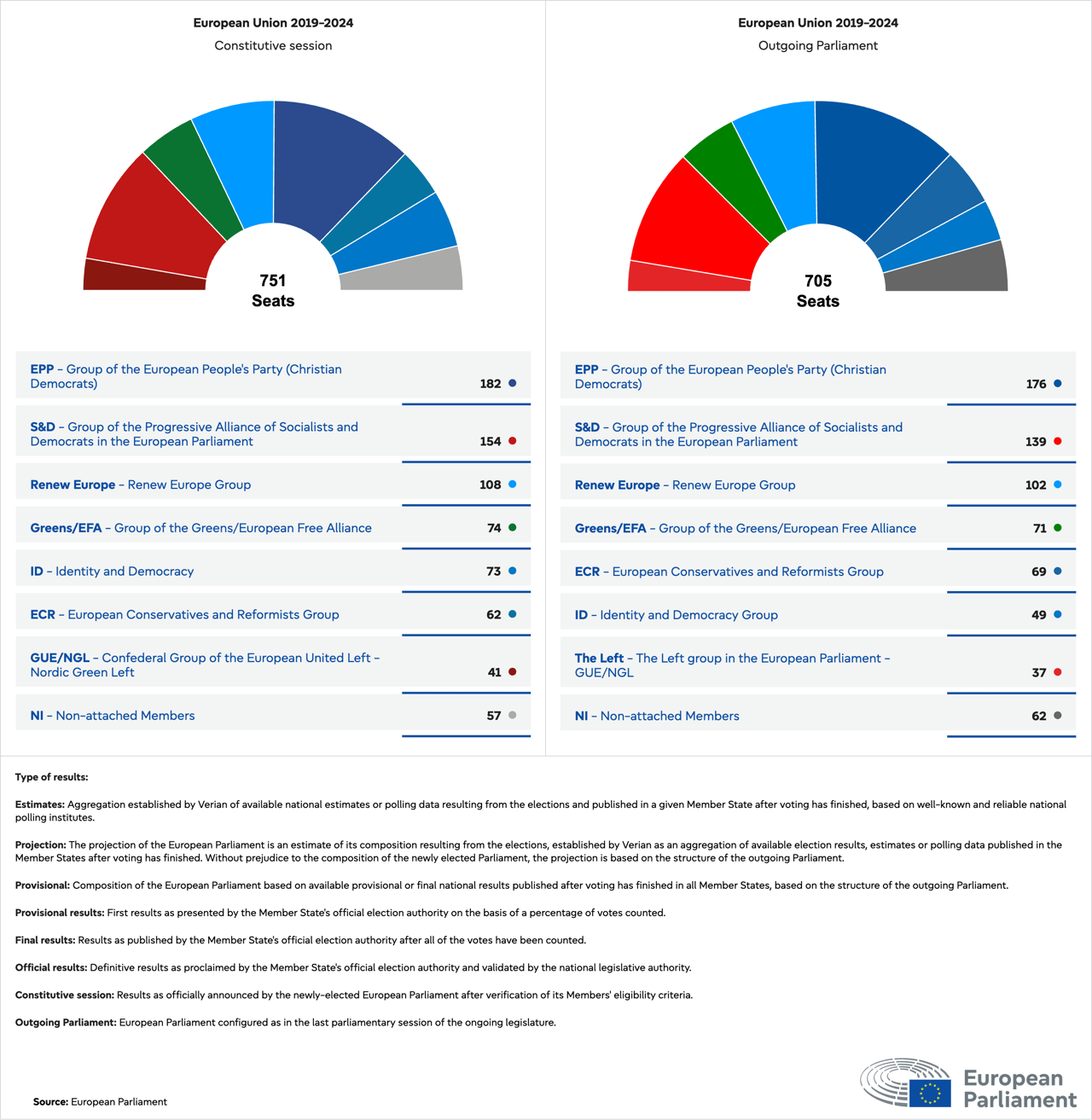
Politicians, particularly in Germany, have been facing criticism lately. It was reported that individuals belonging to the extreme-right party Alternative for Germany (AfD) were assaulted in the southern city of Karlsruhe over the weekend.
Last Thursday, a nearby prospect from the AfD encountered a stabbing event in Mannheim, which happened after attacks on politicians belonging to the Green and Social Democrat parties in May.
However, there were also incidents of assault in other places. Last Friday, a man attacked the Danish Prime Minister, Mette Frederiksen. Although she was not seriously injured, she decided to cancel all the election events.
Although there were several attacks, the most well-known one occurred last month when the Slovakian prime minister, Robert Fico, was shot multiple times. It has been reported that he is recuperating satisfactorily.
The extreme amount of violence we are witnessing is a clear indication of the deeply unsettled political climate throughout the European Union. The anticipated rise of right-wing parties has made this election period more fraught with tension than any before.
Outdoor Atmosphere At EU Parliament
As the election night approaches, journalists prepare themselves while the citizens in Brussels are savouring the pleasant sunshine.
According to the European Digital Media Observatory (EDMO), Europe has not yet witnessed any major disinformation campaign at a large scale.
EDMO officials have noticed several stories in recent days that are trying to persuade individuals not to vote. One of the most recent of these narratives involves fake claims being circulated on social media in Germany. The posts suggest that the EU is planning to implement a "Ukraine Solidarity Tax" of €80 per month, beginning in August of 2024.
Last week, a representative of the European Union spoke with journalists and expressed that these types of movements have become more intricate and advanced.
According to him, we do observe an increase, but it is slight and not limited to one topic or area. However, it is crucial to note that in terms of numbers, we are not witnessing a massive surge in the dissemination of misleading or false information.
What's New On Pollwatch?
Immerse yourself in the most recent findings from our Pollwatch initiative, which brings you fresh perspectives on changing political scenarios, as well as possible changes in future political groupings.
The initial reports indicate that voter participation in the European elections is quite impressive, with a likelihood of surpassing the turnout numbers from 2019. The Netherlands is showing high numbers so far, and early findings from Latvia and Czechia also suggest a marked increase compared to the previous election. France is also anticipating a small improvement this year.
In Hungary, the number of voters turning up to cast their votes is impressive. By 1 pm, 33% of voters had shown up, which is 10% higher than in the previous year.
It is not certain who will profit from the increased turnout. Although the Netherlands indicates that people who are in favor of Europe have contributed to the increase in the number of voters, it is also possible that it resulted from more efficient mobilization by the extreme right. These voters usually have a lower turnout during European elections.
"26 Million Fresh Votes Cast In 2021 Elections"
Several European countries, including Belgium, Germany, Austria, Malta, and Greece, allow teenagers as young as 16 or 17 to vote. This past Sunday, many 16-year-olds exercised this right for the first time in Belgium and Germany. Approximately one million voters in this age group are expected to cast their first votes in the upcoming 2024 elections, and it's predicted that there will be about 26 million eligible first-time voters across Europe.
Post-election Scenario: What's Next?
The officials of EU member countries will send the names of the chosen members of the European Parliament to the European Parliament itself within a few days.
In the meantime, political organizations will hastily restructure themselves - dividing up their finances and vying for potential top positions. Before the 15th of July, political groups are required to inform the EU Parliament's president, Roberta Metsola, of their identities, their political objectives, and their membership. The European Parliament's new term will commence on the 16th of July, and it will operate from its dual bases in Brussels and Strasbourg.
Lessons From 5 European Countries
As we prepare for election night, individuals in the Netherlands (June 6th), Ireland (both on Friday, June 7th), the Czech Republic (June 7th and 8th), Slovakia (June 8th), and Latvia (June 8th) have already cast their votes.
The results of the Netherlands election indicated that a lot of people voting was instrumental in determining who won. The pro-European Union supporters did better than anticipated, and the exit polls demonstrated this. While Geert Wilders and his far-right Party for Freedom (PVV) are expected to secure seven seats, the Green-socialist coalition party triumphed by maintaining eight seats in the elections.
Ireland did not carry out any surveys to determine voter sentiment after the elections, but the results of simultaneous local elections indicate that both the left-leaning Fianna Fáil and the centrist Christian Democratic Party of Fine Gael have fared well. However, it is predicted that the Green Party will suffer a setback as they are unlikely to win any of the 15 seats available in Ireland.
The vote occurred in Slovakia right after someone tried to assassinate prime minister Robert Fico. Polls had to stay open longer than they originally intended because one polling station had to close temporarily due to a white powder incident. Unofficial results from Sunday morning show that the liberal Progressive Slovakia won by a small margin over Fico's Smer party.
Exit polls were not conducted in the Czech Republic and Latvia. We need to be patient and wait until later today when the initial approximations and temporary outcomes are released to gain further information.
The Czech ANO party, headed by ex-PM Andrej Babis, is currently ahead in the polls. Their populist approach is highly critical of Brussels. The ruling coalition, led by Prime Minister Petr Fiala (known as Together), is hot on their heels. The Pirate Party and STAN –both part of Fiala's government– are also likely to secure seats in the European Parliament.
Reports from Latvian media suggest that, using unofficial estimates, the European Conservatives and Reformists' National Alliance and European People's Party's New Unity are predicted to acquire two seats each. Similarly, the Renew party's For Latvia's Development, the European Conservatives and Reformists' United List, a right-wing populist party without a specific affiliation to Europe called Latvia in First Place, the Socialists and Democrats' Harmony, and the Greens' Progressives are projected to obtain one seat each.
"Goodbye European Parliament: Last Session "
The latest European Parliament had 751 spots when the UK was still in the group. But after Brexit, only 705 seats remained. To be specific, EU member states were given 23 of the 73 slots that UK MEPs used to occupy. The other 46 spots were set aside for future potential EU expansions. A bunch of countries benefited from the change. France, Spain, and the Netherlands each picked up two new seats. Meanwhile, Austria, Belgium, Poland, Slovenia, Slovakia, Finland, Latvia, Ireland, and Denmark snagged an extra seat each. The end result? In 2024, the number of MEPs will stand at 720.













































